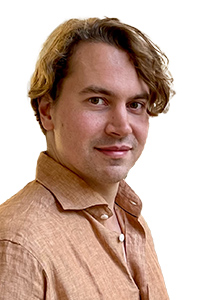Wout Dillen
Senior Lecturer
Faculty of Librarianship, Information, Education and IT (including The Swedish School of Library and Information Science)
— Swedish School of Library and Information Science
I am Senior Lecturer in Library and Information Science, with a focus on Knowledge Organization and Digital Environments. As a Literature and Linguistics student, who obtained his PhD in Literature at the University of Antwerp (Belgium) in 2015, I only became more closely acquainted with the field of LIS science later on in my academic career, during my Experienced Researcher fellowship in the Marie Skłodowska-Curie ITN on Digital Scholarly Editing (DiXiT) here in Borås (2016–2017). Over the years, however, I have come to appreciate the countless intricate ways in which both fields are connected, and inform one another, and continue to find promising opportunities for research at the intersection between the two.
Digital Scholarly Editing
As a PhD candidate, my dissertation focussed on the ways in which we can organise our knowledge about cultural heritage documents in the form of a digital environment like the Digital Scholarly Edition. How do we build an authoritative digital edition around one or more literary works, so that it can both convey our accumulated knowledge about those works, and function as a valuable resource for future research? Which standards do we use to build these environments? Which tools and technologies? How do we establish accountability for our work designing these editions, and allow their users to disagree with our findings? Those were some of the questions I addressed in my dissertation.
Critical Digitisation Processes
While my PhD work primarily focussed on digitising the texts of cultural heritage documents, my work in the DiXiT project provided the opportunity to delve deeper into similar issues related to their digitisation through image capture techniques. Even today, such digital reproductions are often taken at face value. For my research, I therefore observed the digitisation practices of several European national libraries, to help map the different agents involved in the digitisation processes, and their conflicting interests, all of which inadvertently determine the quality of digitised images to a large extent. These experiences informed my current focus on what is called ‘paradata’ (data about the way in which digital assets are made) with regard to digitisation processes.
Sustainable, Accessible, and Inclusive Research Infrastructures
At least as important as the resources we develop, however, are the affordances of the infrastructures we are able to host and share them on. If we want our resources and research to remain accessible and reusable in the future, we need to consider the long term sustainability of our publication platforms, and publish our materials with appropriately open licenses. And if we want to offer the widest possible audience an opportunity to interact with our materials, we need to consider issues of web accessibility (to reach people with disabilities) and explore minimal computing alternatives (to reach areas in the world with less reliable access to infrastructures). That is also why issues such as ‘tool criticism’ (developing a critical attitude towards the tools we use in our research), algorithmic bias, code documentation, etc. are key topics in my research and teaching.
Other Academic Service
Alongside my teaching and research, I am also involved in several research communities in the field. I have been a Board member of the European Society for Textual Scholarship (ESTS) since 2015, and its Secretary since 2017, as well as a Steering Committee member of DH Benelux 2016, and on its Executive Board since 2021. I am also the General Editor of Variants, the journal of the ESTS; the Deputy Editor of Information Research; and on the editorial board of the Journal of the DH Benelux.


